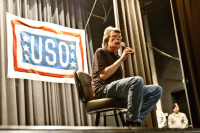Aalto Alvar
Weston
Internationally renowned as one of the major achievements of modern architecture, the work of Alvar Aalto (1898-1976) was deeply rooted in the culture and the landscape of his native Finland. A Grand Duchy of Russia until the revolution of 1917, the newly independent state promoted architecture as a means of establishing its identity as a social democracy, and in Aalto found an architect with the ambition and talents to meet the challenge. Throughout a long and fertile career his work embraced almost all the key public institutions - town halls, libraries, theatres, churches, universities and government departments - as well as social housing and private dwellings. He brought to buildings of every type and scale a profound concern for the physical and psychological needs of their individual users, as well as sensitivity to natural sites and materials and to the experimental qualities of architecture. This monograph situates Alvar Aalto in the context of both international modernism and Finnish culture. It explores the key inspirations upon which the architect drew throughout his career, including the Finnish landscape and vernacular traditions, Italian domestic architecture and Greek site planning, as well as the work of architects such as Gunar Asplund and Le Corbusier. Included are investigations of key projects such as Paimio Sanatorium, the Villa Mairea, Saynatsalo Town Hall, Seinajoki Town Centre, Vuokkseniska Church, the Finlandia Concert Hall and the Congress Centre in Helsinki. The complete range of his work is examined in this text through a study of recurring themes - the dialogue between nature and culture, the reciprocity of the individual and the collective, building and place.
więcej
Informacje dodatkowe o Aalto Alvar:
Wydawnictwo: angielskie
Data wydania: b.d
Kategoria: Inne
ISBN:
Liczba stron: 0
Kup książkę Aalto Alvar
Sprawdzam ceny dla ciebie ...
Cytaty z książki
REKLAMA
Zobacz także
Aalto Alvar - opinie o książce
Inne książki autora
Creativity for Critical Thinkers
0
This unique book is a concise introduction to creativity--the art of expanding possibility. Covering such practical methods as multiplying options, brainstorming...
Color Textbook of Pediatric Dermatology 4e
Zobacz wszystkie książki tego autora
0
Treat a full range of pediatric skin disorders! Concise yet thorough, this clinically oriented reference presents exactly what you need to diagnose and...
Recenzje miesiąca
Pokaż wszystkie recenzje



















Chcę przeczytać,